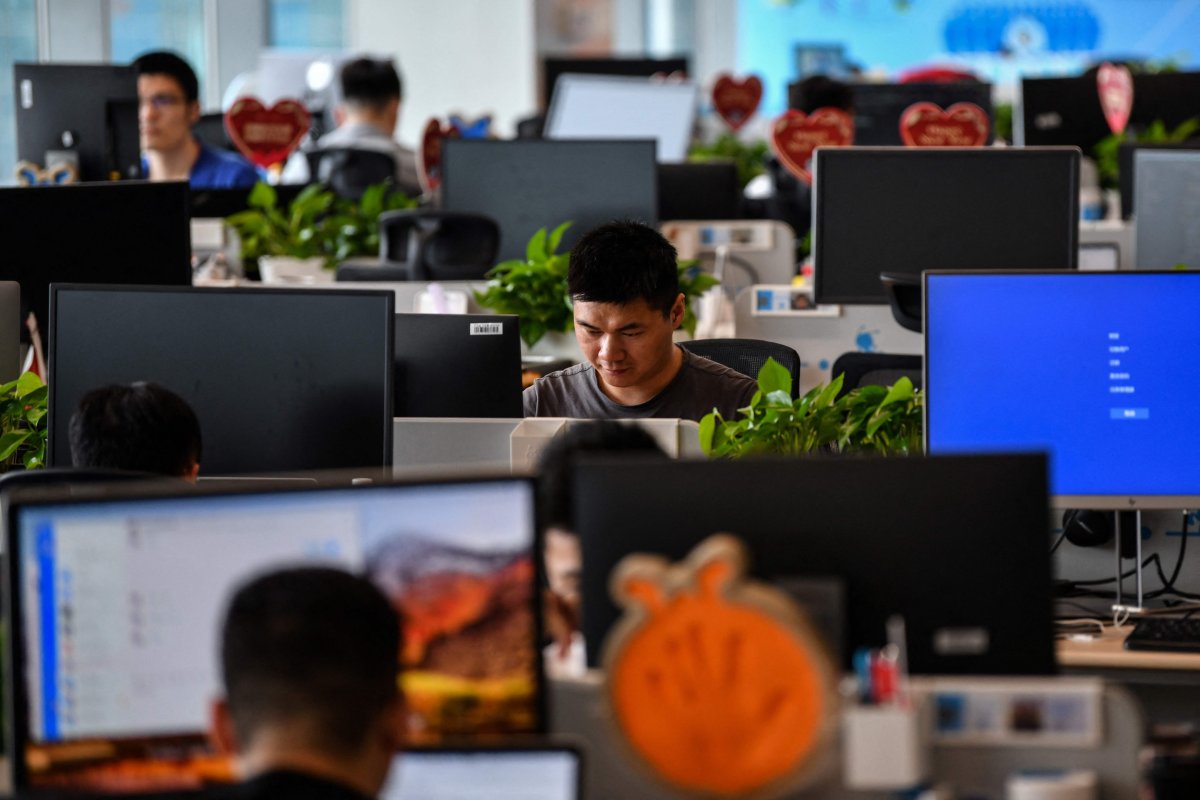A supermarket caused a stir on Chinese social media after it advertised it was looking for new cashiers, but only those between the ages of 18 and 30.
The ad touched a nerve among members of the over-30 group struggling to find a job amid preferences for younger workers and a cooling economy.
The 15.3 percent unemployment rate Beijing reported for urban youth ages 16 to 24, a figure high even by the country's own recently adjusted way of calculation, adds to the hyper competitiveness in the Chinese job market.
A netizen in Ningbo, Zhejiang Province, posted a photo of the ad on China's X-like social media platform Weibo. The uploader said: "People over 30 aren't even wanted at the supermarket," Singapore's Chinese-language Zaobao newspaper reported.

As of Monday, the widely shared post had garnered 140 million views and 41,000 comments, per Reuters. Many of the responses were from over-30s who reporting employment difficulties of their own.
"I'm 33 years old and have been looking for a job for three years," one Weibo user wrote.
"The main thing is that there are too many people," said another.
"Now it becomes 30 years old. At the same time, the retirement age has to be delayed. So what are you going to do in between?" another wrote.
"People are still working abroad at 70 and 80, and in China 35-year-olds aren't needed," another wrote.
The post raised a recurring topic in China, the "Curse of 35," the threshold at which employability is understood to drop relative to young, lower-paid workers.
State-run outlet the Workers Daily addressed age-based and other discrimination against job seekers in op-ed last year.
"Age discrimination is always there in China's labor market; it is just more conspicuous when unemployment escalates during China's economic downturn, Elliot Fan, professor and graduate director at National Taiwan University's Department of Economics, told Newsweek.
"Compared to younger workers, middle-aged adults who experienced unemployment are likely to remain unemployed longer and eventually become discouraged workers who quit job seeking. That's why I always consider middle-career unemployment a more serious concern than that of younger workers."
Newsweek reached out to the Chinese Foreign Ministry for comment.
The squeeze on the country of 1.4 billion's massive but rapidly aging workforce is set to increase as China gradually raises the age of retirement—currently 60 for men, 55 for white-collar women, and 50 for women employed in factories.
"Relative to China's consumer market, China has a surplus of about 100 million laborers. In the past, China relied on exports to ensure employment. But now, due to the economic downturn and the "de-risk" policy of the West, China's exports are falling and unemployment pressure is rising," University of Wisconsin-Madison researcher Yi Fuxian told Newsweek.
Adding fuel to the fire, a record 11.79 million college students are set to graduate this year.
China added more than 12.4 million urban jobs last year, its Ministry of Human Resources and Social Security said in January.
Notably missing from the figure was data on rural labor. The demographic was, along with students and people who have given up the job hunt, also omitted in the National Statistics Bureau's recent youth employment reports. The bureau resumed the monthly reports, compiled according to a new methodology, in December following a six-month pause.
Update 3/28/24, 11:30 a.m. ET: This article was updated to include comment from Elliot Fan.
Uncommon Knowledge
Newsweek is committed to challenging conventional wisdom and finding connections in the search for common ground.
Newsweek is committed to challenging conventional wisdom and finding connections in the search for common ground.
About the writer
Micah McCartney is a reporter for Newsweek based in Taipei, Taiwan. He covers U.S.-China relations, East Asian and Southeast Asian ... Read more
To read how Newsweek uses AI as a newsroom tool, Click here.








